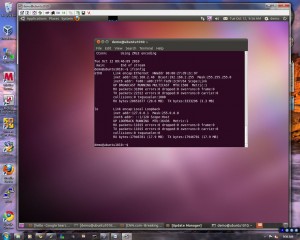There are circumstances where you wish to have a script run automatically when you log in to Ubuntu Desktop. Such a script can configure various user-specific or system-wide settings on your Ubuntu system, upon user’s desktop login.
In Linux, there are start-up scripts named ~/.bash_profile, ~/.bashrc, or ~/.profile which get executed when you start a shell. However, in Ubuntu Desktop, such start-up scripts get executed when you open up a terminal window, but NOT when you log in to Ubuntu Desktop GUI. Also, when you open multiple terminal windows, these kinds of start-up scripts are executed as many times, in order to initialize user’s shell environment in terminal windows.
If what you want is to run a script at the time of user’s Ubuntu Desktop login, you can follow this guideline.
Create a XDG configuration file for the start-up script you want to run.
$ vi ~/.config/autostart/my_script.desktop
[Desktop Entry] Type=Application Name=My Script Exec=~/bin/my_custom_script.sh Icon=system-run X-GNOME-Autostart-enabled=true
The above XDG configuration file will set up “user-specific” auto-start. Then you want all users to use the same start-up script “system-wide”, create a similar XDG configuration file in the following location instead.
$ sudo vi /etc/xdg/autostart/my_script.desktop
[Desktop Entry] Type=Application Name=My Script Exec=sudo /sbin/my_custom_script.sh Icon=system-run X-GNOME-Autostart-enabled=true
If the start-up script requires sudo access like an above example, you will need to set up password-less sudo.


